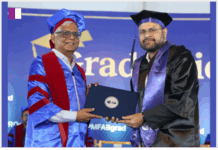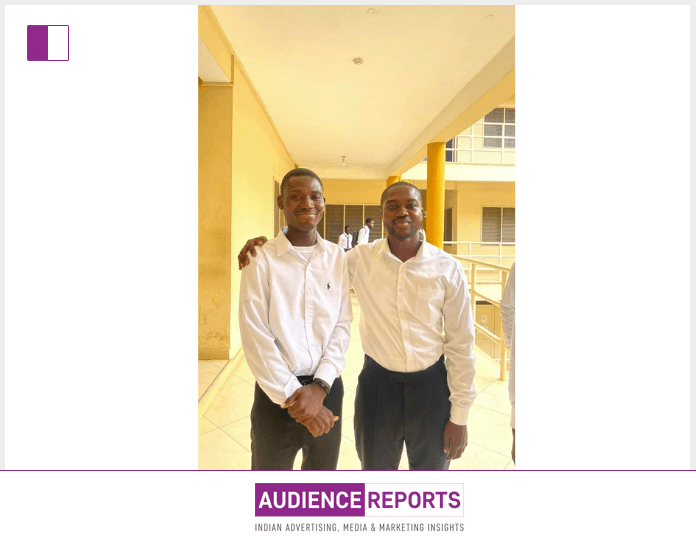Alexander Andoh’s recent LinkedIn post offers a compelling perspective on the power of teamwork and incremental progress in achieving complex goals. As someone well-versed in data, AI, quality management, and continuous improvement, Alexander Andoh’s reflections on his final year project in Chemical Engineering underscore the importance of collective effort and consistent progress.
Alexander Andoh begins his post by emphasizing a fundamental principle: “Big things are small pieces put together.” This principle was vividly illustrated through his recent project—“A Plant Design For The Extraction Of Manganese From Ore At Nsuta.” For Alexander Andoh and his team, this project was not just an academic requirement but a demonstration of how intricate tasks can be completed through meticulous effort and collaboration.
In his role within the Chemical Engineering Students’ Association (CHEESA-KNUST), Alexander Andoh has experienced firsthand the lessons that come from managing large-scale projects composed of numerous smaller tasks. Completing such a project required more than just technical knowledge; it demanded effective teamwork, strategic planning, and a shared commitment to overcoming challenges.
One of the major lessons highlighted by Alexander Andoh is the concept that “every team member is a leader.” This insight reflects a critical understanding of how leadership in a project is distributed rather than centralized. According to Alexander Andoh, while a designated leader often guides the team, it is crucial for every member to contribute their unique experiences and expertise. By doing so, the team benefits from a diverse range of solutions and approaches, reducing the burden on any single individual and enhancing the overall project outcome.
Alexander Andoh’s emphasis on distributed leadership underscores a broader principle applicable in many fields: effective leadership often involves empowering others. By encouraging each team member to take ownership of their contributions, the project can harness a wider array of skills and perspectives. This approach not only improves the quality of the work but also fosters a sense of collective responsibility and engagement.
Another key lesson shared by Alexander Andoh is the value of “experts” within a team. His post illustrates how having individuals with specialized skills—such as data analysis, research expertise, and effective communication—can significantly enhance a project’s success. The presence of these experts ensures that various aspects of the project are handled with the necessary proficiency, contributing to a more efficient and effective process.
Alexander Andoh’s recognition of the importance of expertise highlights the necessity of assembling a well-rounded team. In any project, having the right people with the right skills can make a substantial difference. This principle is particularly relevant in complex projects where specific knowledge and technical abilities are crucial for addressing challenges and achieving goals.
Consistency emerges as another pivotal lesson from Alexander Andoh’s experience. He recounts the challenges of finding accurate information and the time spent on equipment designs. Despite these hurdles, maintaining a consistent workflow proved to be a key factor in achieving progress. Alexander Andoh’s experience reinforces the idea that steady, incremental effort often leads to significant advancements over time.
The principle of consistency is crucial not only in academic projects but also in professional and personal pursuits. By adhering to a regular work routine and persevering through challenges, individuals and teams can gradually overcome obstacles and achieve their objectives. Alexander Andoh’s commitment to consistent progress serves as a valuable reminder of the importance of dedication and persistence.
Alexander Andoh’s reflections on his project also include a note of gratitude towards his supervisors, the Chemical Engineering Students’ Association (CHEESA-KNUST), and his team members. This acknowledgment highlights the role of support and guidance in navigating complex projects. The mention of “deadlines” as a guiding force underscores the reality of managing time constraints and staying focused on goals.
Alexander Andoh’s post provides a rich narrative on the value of teamwork, expertise, and consistency in achieving complex goals. His experience with the final year project serves as a powerful example of how breaking down large tasks into manageable pieces and leveraging the strengths of each team member can lead to significant success. By embracing the principles of distributed leadership, valuing expert contributions, and maintaining a consistent effort, individuals and teams can navigate challenges and achieve their objectives. Alexander Andoh’s insights offer practical lessons for anyone involved in complex projects, demonstrating that big successes are indeed the result of many small, deliberate actions.



































